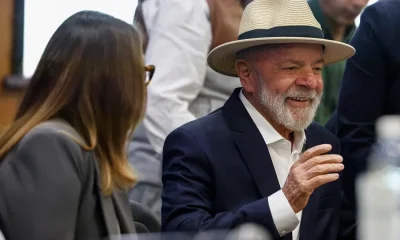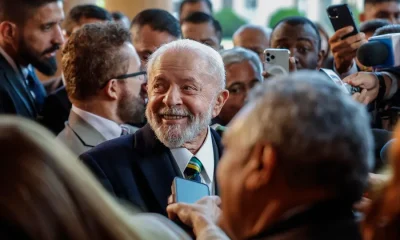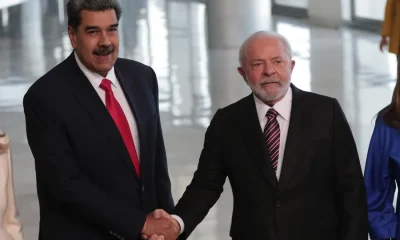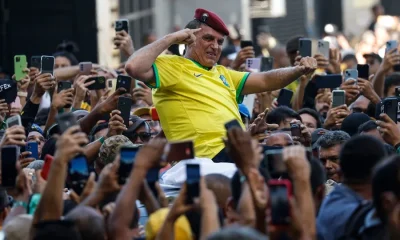International
Lula puts diverse new face on Brazil government
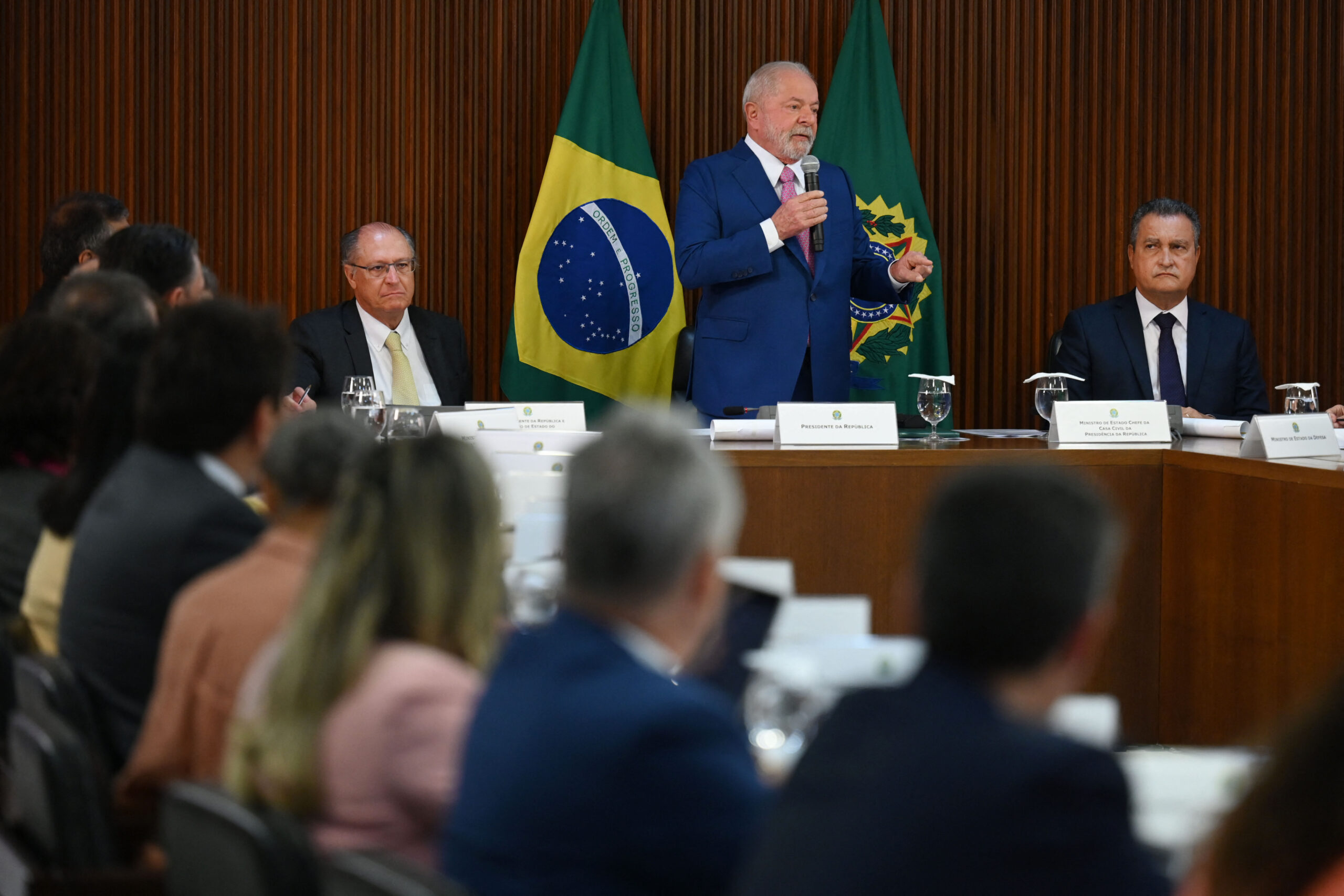
January 6th | By AFP |
Brazil’s new President Luiz Inacio Lula da Silva held his first cabinet meeting Friday, getting down to the business of “rebuilding” and “reunifying” the country after his divisive election battle with far-right predecessor Jair Bolsonaro.
The veteran leftist’s new government looks radically different from Bolsonaro’s, with 11 women, five blacks and two Indigenous ministers — a break with the previous administration, which was dominated by white men and military generals.
Here is a look at five key figures in the new government.
Finance novice
Lula, 77, ignored market pressure and named a political pick for finance minister: Fernando Haddad, a longtime ally who ran for president for his Workers’ Party (PT) in 2018.
The choice has not exactly thrilled the business world: stocks in Latin America’s biggest economy fell more than three percent Monday on the first business day of Lula’s term, with investors nervous over how he will fund his promised social spending, given Brazil’s already overstretched government finances.
Haddad, 59, a lawyer who previously served as education minister and Sao Paulo mayor, has sought to send a message of fiscal discipline.
“We’re not here to go on big-spending adventures,” he said Monday at his swearing-in. “We’re here to ensure the economy resumes growing to meet the population’s needs in health, education and social programs, while guaranteeing fiscal balance and sustainability.”
Environmental crusader
Marina Silva, a veteran environmentalist, faces the huge job of rebuilding Brazil’s environmental protection agencies and stanching the destruction of the Amazon rainforest, which surged under Bolsonaro.
The diminutive but fiery 64-year-old environment minister, who rose from a childhood of poverty in the Amazon to become a respected activist and politician, vowed Wednesday as she took office to ensure Brazil “stops being an international pariah” on climate issues.
Environmental groups are calling for her to take urgent, decisive action — and for Lula to give her the power to do so.
The two had a falling-out when she previously served as environment minister during his first presidency. She quit in 2008 after disagreements with his pro-development policies in the Amazon.
‘Rebuilding bridges’
Career diplomat Mauro Vieira, 71, says his task as Brazil’s new foreign minister is to “rebuild the country’s bridges with the world.”
Brazil is coming off four years of mounting isolation under Bolsonaro, who cultivated close ties with former US president Donald Trump but alienated many of Brazil’s traditional partners, especially Europe and China.
Lula has vowed to renew Brazil’s traditional multilateralism, especially on climate issues — though he has also raised eyebrows in the West with some comments, such as saying Ukraine bears equal blame for its war with Russia.
Vieira, a respected foreign service veteran, previously served as foreign minister under ex-president Dilma Rousseff from 2015 to 2016.
He took office Monday vowing: “Brazil is back.”
Northeastern connection
Lula, who won the October election thanks to overwhelming support in Brazil’s impoverished northeast, has named four former governors from the region to his cabinet.
One of the most powerful figures in his administration will be Justice Minister Flavio Dino, 54, former governor of the northeastern state of Maranhao, who ran in 2015-2022.
A former judge, Dino was a vocal Lula spokesman during the transition period, condemning “unacceptable terrorism” by far-right hardliners refusing to accept the election result, after a Bolsonaro supporter was arrested for planting a tanker truck rigged with explosives near the Brasilia airport.
Minorities, ‘you exist’
New Human Rights Minister Silvio Almeida, a 46-year-old black lawyer and public intellectual, turned heads on his first day in office with an impassioned speech that underlined the new administration’s break with the Bolsonaro years.
Speaking to groups that complained of being marginalized, discriminated against or ignored under Bolsonaro — including blacks, women, the disabled and the LGBT community — he repeated over and over: “You exist, and you are valuable to us.”
The speech drew loud cheers and went viral online, cementing Almeida’s status as a rising star in Brazilian politics.
International
Paraguay summons Brazilian ambassador over Itaipú espionage scandal
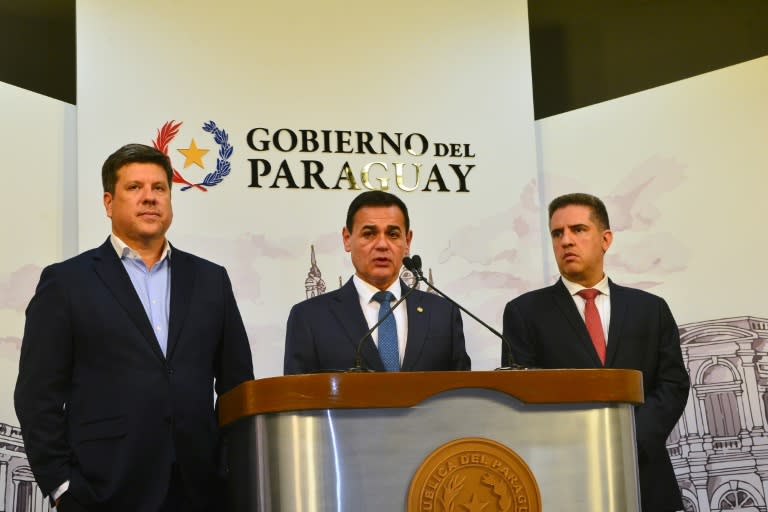
Paraguay summoned the Brazilian ambassador in Asunción on Tuesday to demand “explanations” and called its own representative in Brasília for consultations following Brazil’s acknowledgment of an espionage operation. The Brazilian government, led by President Luiz Inácio Lula da Silva, attributed the operation to the previous administration.
The surveillance effort aimed to uncover Paraguay’s position in now-suspended negotiations with Brazil regarding the pricing of electricity from the binational Itaipú hydroelectric plant, according to reports in the Brazilian press.
The Brazilian government “categorically denied any involvement in the intelligence operation,” stating in a Foreign Ministry communiqué on Monday that the espionage was carried out under former President Jair Bolsonaro’s administration (2019-2023).
“The operation was authorized by the previous government in June 2022 and was annulled by the interim director of the (state intelligence agency) ABIN on March 27, 2023, as soon as the current administration became aware of it,” Brazil’s government asserted.
Paraguay’s Foreign Minister Rubén Ramírez announced that Brazilian Ambassador José Antonio Marcondes de Carvalho was summoned “to provide detailed explanations” regarding the operation. Additionally, Paraguay recalled its diplomatic representative in Brasília “to report on aspects related to the intelligence activity conducted by Brazil regarding Paraguay’s government affairs.”
International
Elon Musk to step down as government advisor, per Trump insiders
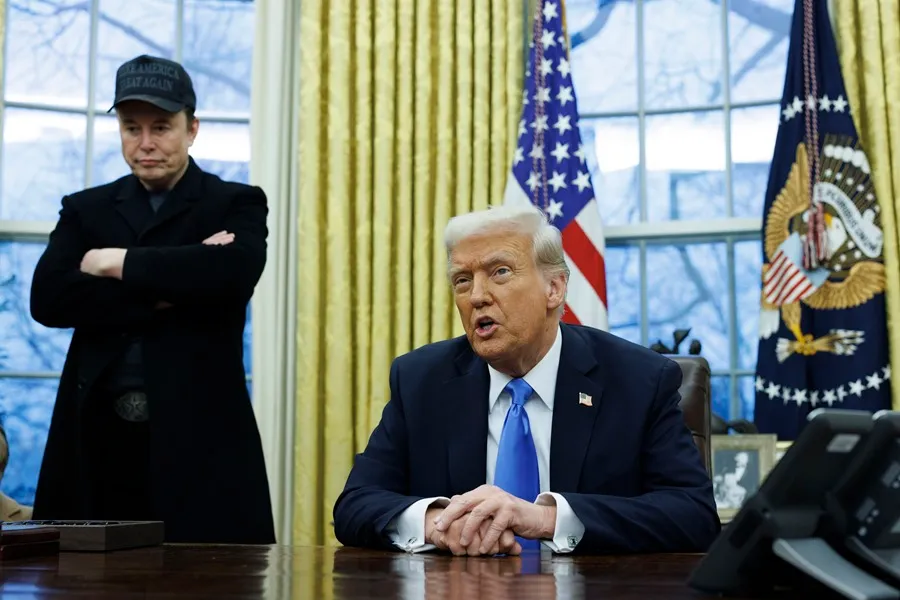
President Donald Trump has informed his inner circle that Elon Musk will be stepping down from his role as a government advisor, according to a report by Politico today.
Citing three individuals close to Trump, Politico states that the president is pleased with Musk’s leadership at the Department of Government Efficiency (DOGE), where he has implemented significant budget cuts. However, both have agreed that it is time for Musk to return to his businesses and support Trump from a different position outside the government.
A senior administration official told Politico that Musk will likely maintain an informal advisory role and continue to be an occasional visitor to the White House. Another source warned that anyone thinking Musk will completely disappear from Trump’s circle is “deluding themselves.”
According to the sources, this transition is expected to coincide with the end of Musk’s tenure as a “special government employee,” a temporary status that exempts him from certain ethics and conflict-of-interest regulations. This 130-day period is set to expire in late May or early June.
International
Milei vows to make Argentina so strong that Falkland Islanders “choose” to join

Argentine President Javier Milei reaffirmed his country’s claim over the Falkland Islands (known as the Islas Malvinas in Argentina) and praised the role of the nation’s armed forces during a ceremony marking the “Veterans and Fallen Soldiers of the Malvinas War Day,” commemorating 43 years since the 1982 conflict with the United Kingdom.
Argentina continues to assert sovereignty over the islands, arguing that Britain unlawfully seized them in 1833.
“If sovereignty over the Malvinas is the issue, we have always made it clear that the most important vote is the one cast with one’s feet. We hope that one day, the Malvinas residents will choose to vote with their feet and join us,” Milei stated.
“That is why we aim to become a global power—so much so that they would prefer to be Argentine, making deterrence or persuasion unnecessary. This is why we have embarked on a path of liberation, working to make Argentina the freest country in the world and once again the nation with the highest GDP per capita on the planet,” he added.
-

 Central America3 days ago
Central America3 days agoU.S. Homeland Security Secretary urges Mexico to strengthen Guatemala border
-

 Central America3 days ago
Central America3 days agoPanama grants Martinelli 72-hour extension to travel to Nicaragua
-

 International2 days ago
International2 days agoParaguay summons Brazilian ambassador over Itaipú espionage scandal
-

 Central America4 days ago
Central America4 days agoPanama police clarifies that Interpol alert for Martinelli is still pending
-

 International3 days ago
International3 days agoTrump urges Putin to reach peace deal
-

 International4 days ago
International4 days agoDeportation flight lands in Venezuela; government denies criminal gang links
-

 Sports2 days ago
Sports2 days agoFilipe Luis debuts as coach in Copa Libertadores with Flamengo
-

 Central America2 days ago
Central America2 days agoGuatemalan police officer killed in mob riots over baby kidnapping
-

 International2 days ago
International2 days agoElon Musk to step down as government advisor, per Trump insiders
-

 Sports2 days ago
Sports2 days agoVenezuela investigates 18 baseball players seeking asylum in Spain
-

 International2 days ago
International2 days agoMilei vows to make Argentina so strong that Falkland Islanders “choose” to join
-

 International2 days ago
International2 days agoICE agent’s arrest of suspect sparks controversy in Boston
-

 International2 days ago
International2 days agoÓscar Arias: Trump’s trade policies are a step backward


















